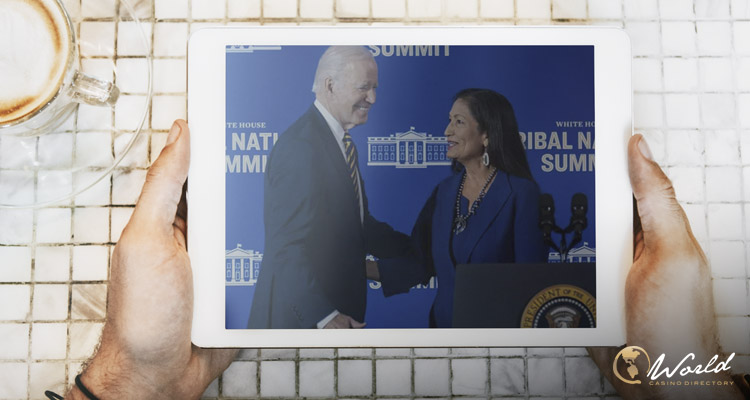The Baiden administration is ready to advance with a plan to permit the tribe located in the Pacific Northwest to construct a second casino far outside its territory. However, this plan is fiercely opposed by Democrats and other tribes in the region.
Opponents of the first EIS draft:
The Department of the Interior’s Bureau of Indian Affairs (BIA) is projected to release the last environmental impact statement (EIS) that is likely to approve a proposal by the Coquille Indian Tribe, an Oregon-based tribe, to construct and manage a casino located outside of its territory in Medford, Oregon, as early as this week, people with knowledge of the federal review process said to the Fox News Digital.
Furthermore, the aforementioned BIA first released its EIS draft for the proposal back in November of the previous year. Additionally, the public comment time frame for it ended at the end of February. A comprehensive spectrum of voices, involving a few tribes across the state, a few regional tribes and bipartisan lawmakers, condemned the draft EIS that suggested the federal government validate Coquille’s move to construct an “off-reservation” casino, to be called Cedars at Bears Creek.
In this regard, the Tribal Alliance of Sovereign Indian Nations, which speaks on behalf of 13 tribes in California, wrote directly to Brian Newland, assistant secretary of the BIA, earlier in November: “The Coquille Indian Tribe’s application to transfer fee land in Medford, Oregon into trust for gaming using the restored lands exception directly threatens the sovereign rights of tribal governments to operate gaming on their lands.”
In an identical letter to Newland, the California Nations Indian Gaming Association, which speaks on behalf of many more federally recognized tribal governments on problems linked to gaming, identically claimed that completing the draft EIS would endanger its members’ “sovereign rights as tribes.”
A large number of opponents of the proposed casino:
The question of whether to validate Coquille’s casino proposal has been met with fierce opposition since the tribe first officially proposed the plan nearly a decade ago. In addition, the plan was originally suggested in line with Obama administration policies that relieved limitations on gaming and trust-land purchases, a move that raised concerns from critics that the Biden administration was “doubling down” on it.
However, opponents of the casino proposal, involving Tribal Alliance of Sovereign Indian Nations, the California Nations Indian Gaming Association, in addition to lawmakers and other tribes, specifically claimed that the project’s development would undermine the rights of other neighboring tribes and directly affect their gaming income.
Also, speaking on the issue, they added: “The move would set a dangerous precedent whereby tribes are able to freely build gaming venues on or near other tribes’ lands and reap the financial benefits. The Coquille already operate the Mill Casino in North Bend, Oregon, and the Cedars at Bear Creek casino would be the first off-reservation casino in Oregon.”
Moreover, also speaking on the issue, Oregon Democratic Senators Jeff Merkley and Ron Wyden and California Democratic Senator Alex Padilla officially wrote to the Interior Secretary Deb Haaland in 2022, stating: “The bottom line is if the Coquille Tribe is allowed to build another casino in Oregon, it will likely lead to all out gaming conflicts between Oregon and California tribes. It would also have a detrimental impact on tribes in Oregon and California that rely on the income generated by their gaming facilities and utilize those funds to provide vital governmental services.
This would have negative consequences in many of our communities if Oregon and California’s carefully crafted balance between producing gambling revenues and an overall focus of public good for our citizens were seriously compromised by the Department of Interior approving a second casino for the Coquille Tribe.”
To put it simply, opponents are mounting, involving Reps. Suzanne Bonamici, D-Ore., Jared Huffman, D-Ore., Earl Blumenauer, Democratic Oregon Gov. Tina Kotek, Doug LaMalfa, R-Calif and D-Calif., Cliff Bentz. In this regard, a wide alliance of tribes in the region headed by the Cow Creek Band of Umpqua Tribe of Indians, who are located close to the location of the proposed project, and involving the Tolowa Dee-Ní, Klamath Tribes, Smith River and Karuk, urged the government to dismiss the proposal.
The Cow Creek pointed to estimates by the Coquille that reveal Cow Creek’s Seven Feathers Casino Resort will experience a 25% drop in gaming income if the proposed casino is built.
On that note, Carla Keene, president of Cow Creek, commented throughout a public hearing hosted by the BIA in late 2022: “I want to emphasize the profound impact Coquille’s second casino would have on my Tribe and my people. It will impact essential governmental services that the Tribe provides. It will impact our education program. It will impact our ability to provide healthcare and social services that many of our members rely upon.”
Additionally, Michael Rondeau, CEO of Cow Creek, added: “If approved, and the doors open, this will open the floodgates for additional casinos in the State by this one Tribe. The other Tribes do not enjoy that ability to open second casinos. The casino is 150 miles from their reservation.”
Throughout the second public hearing in January of this year, an expert in Native American history and the Pamplin Chair of History at Oregon State University’s Lewis & Clark College, Stephen Dow Beckham, commented: “The proposal is wrongheaded.” He also noted at the time: “Never have I seen a case of more blatant, glaring reservation-shopping than the proposal of the Coquille Tribe to reach 168 miles from North Bend, Oregon into the treaty cession area of the Rogue River tribes to try to justify a second casino and entertainment venue.
The Coquille Tribe was not an aboriginal tribe in the Rogue River Valley. It lived over on the coast of Oregon. This project will have deleterious impacts on neighboring tribes. The impacts of the Coquille casino will undermine the delivery of services to the Karuk, the Klamath, the Tolowa, the Smith River and the Cow Creek peoples; all so that another tribe from North Bend, Oregon can have a second casino and hotel.”
Finally, last week, the chair of the Karuk Tribe in California, Russell Attebery, the chair of the Tunica-Biloxi Tribe of Louisiana, Marshall Pierite and the chair of the Karuk Tribe in California, Russell Attebery, put together an op-ed urging President Biden to dismiss the proposed casino project and halt this policy that will result in “casino gaming to cascade nationally without any bounds, hurting historically marginalized Indigenous peoples the hardest.”
Additionally, they stressed that dismissing the proposal would represent a gesture of good will from the administration before the upcoming Tribal Nations Summit at the White House scheduled to happen at the beginning of next month.
Speaking about it, Pierite, of the Tunica-Biloxi Tribe, said to Fox Digital News: “As a restored Tribal Nation, we know the challenges associated with assembling our homelands. Where we come from and where we belong still matters. Federal Indian land acquisition efforts must honor the ancestral relationship our Tribal Nations have with our homelands. The career bureaucrats at DOI appear to be drifting away from that understanding. The White House has an opportunity to make a correction before the Tribal Nations Summit next month.”
On a related note, in a November 17 post on social media, Wyden shared the op-ed of Pierite and other tribal leaders and added: “The Biden administration must reaffirm its commitment to tribal communities and how the misguided policy at the root of the Medford casino proposal is harming tribes across the country.”
The proposal comes as a solution to end financial troubles for the Coquille Indian Tribe:
In compliance with the information from the aforementioned BIA’s drafted EIS, the Coquille Tribe and its members have been experiencing financial hardships for years because of the economic stagnation, changing demographics on the Oregon coast, persistently high inflation and an ever-growing population requiring tribal services. On that note, the BIA added: “Re haha777 venue from the tribe’s sole casino is now insufficient to sustain the tribe’s needs.”
According to the plan, if the casino project is built, the tribe could redirect the income raised to maintain existing tribal programs and assist with financing fresh initiatives needed to meet the needs of the tribe’s changing and growing membership, all while keeping the tribe’s self-sufficiency and self-determination, the BIA said.
Furthermore, in the draft EIS, the BIA stated: “The failure of economic development efforts in the region have driven job seekers out of the community, contributing to a diminishing population and a lack of financial prospects. This situation was further worsened with the addition of tribal gaming competition within the Mill Casino’s limited local market, combined with increasing costs, including those associated with the future impacts of Oregon’s minimum wage law. Based on the underlying causes of the Mill Casino’s trend of declining revenue, it is unlikely that the Mill Casino, with its current limitations, will experience revenue growth in the foreseeable future.”
As soon as the BIA unveils its finalized EIS, one more public comment time frame will start. Once finished, the agency would publish the final record of its ruling. However, the Coquille Tribe and the BIA couldn’t be reached for comment.


